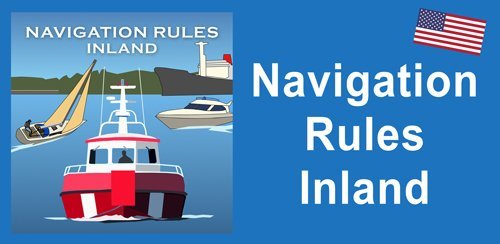Understanding tides when passage planning
When planning a trip in tidal waters, check the tides before going afloat. Use almanacs, charts, tide tables and tidal stream atlases to gather all the data you need.
It is advisable to have a written note of tidal data for your trip including:
Your boat’s draft.
The predicted times (in Universal Time) of high and low water.
The heights of the tide.
The tidal ranges.
The direction and speeds of the tidal streams en route.
Check when and how the state of the tide will affect local areas including shallows, harbour entrances, sand bars, headlands and estuaries.
Check predictions and forecasts to determine if and when rough seas caused by wind against tide will occur. Be prepared to change your plan to avoid being caught in adverse conditions.
Use all the data you gather to:
Plan your departure time(s).
Take advantage of tidal flow to shorten journey time.
Estimate your journey time.
Plan your arrival time(s).
Avoid potential hazards caused by tidal conditions.
Ensure there will be safe clearance under your keel at all times.
Tips:
Double check all calculations.
Remember to allow for Summer Time, if applicable.
Avoid shallow water on a falling tide.
How to ensure your boat is in proper working condition
In this article Eva Tucker from Volvo Penta presents a handy check list of all the things that you need to check regularly in order to make sure that your boat is in a seaworthy condition. Including maintenance, safety gear and electrical checks.
Tidal terms and definitions
Getting to grips with tidal terms and definitions can seem a little daunting, even to the most experienced sailors! Here we look at some of the key terms and definitions associated with the language of tides.
The give-way hierarchy – sail boats and power boats
Who gives way to who at sea? Even seasoned sailors sometimes get this wrong and in a crowded harbour this can easily lead to a collision or at best considerable embarrassment for a boat that mistakenly thinks it has right of way over another.
Boat engine cooling systems
Some boat engine breakdowns are unavoidable but those caused by lack of maintenance or regular checks can be avoided. Failure to maintain an engine’s cooling system is a well known example of this, so it is well worth spending time checking over the cooling system both when the boat is ashore and afloat.
How to operate a winch
The dangers of running aground in a motor boat
The peril of grounding a motor boat is not only an inconvenience; it can lead to substantial risks for both the vessel and its passengers. . In this article, we’ll explore the potential dangers of running aground and highlight the importance of proper navigation and preparedness to avoid these hazards!
Galvanic and electrolytic corrosion
Galvanic corrosion is an electrochemical reaction between two or more different metals, in the presence of an electrolyte (note salt water is a good electrolyte).
Tools and spares for your boat
Tools and Spares to take to sea!
You won’t regret taking a look at our essential tips and checklist to make sure you’re prepared for routine maintenance and those unexpected jobs that come up whilst you’re afloat!
Wooden Hull Repairs
While wooden boat hull maintenance is mostly straightforward, it is always a good idea to take expert advice on any repair job needed doing to a wooden boat, unless you have done the job before and know what you are doing.
Learn ColRegs: Traffic Separation Schemes
How to Avoid Collisions At Sea With The ColRegs
2023 Rolex Fastnet Race – Part 3
This is our third and final article about the 2023 Rolex Fastnet Race. It is a first hand account by Simon Jollands who was one of the crew of Lancelot II, a Beneteau First 40 skippered by John Gillard.
Sailboat rig checks – Part 1
Sailing boat rigs need to be checked regularly to reduce the risk of rig failure at sea. In part one of Sail boat rig checks we run through a series of useful checks that owners and skippers can carry out.
Right boat vs Wrong boat – Over 30 Ways to Cut the Cost of Your Sailing and Cruising
Sailing and cruising offer unparalleled freedom and adventure, but they can quickly become costly. Fortunately, there are numerous strategies to help you enjoy the open water without breaking the bank. Here are over 30 practical ways to cut your sailing and cruising costs.
ColRegs Nav Lights & Shapes, Rules Of The Road and IALA Buoys Apps
How to tackle osmosis
Sail care and maintenance – Part 1
When thinking about the care, maintenance and repair of sails it helps to have some understanding of the properties of the ever growing range of modern sailcloth and the fibres they are made from, as opposed to the traditional canvas sails of the past.
Common marine electrical problems
Most problems with marine electrical systems arise from four possible sources, a lack of maintenance, a poor standard of initial installation, insufficient battery capacity, or ineffective charging systems.
Water ingress is a frequent issue – salt water can corrode contacts very quickly. If connections are not scrupulously clean – or are loose – resistance will be increased, resulting in progressively reduced power.
Always have an emergency ditch bag ready to go…
Essential Knots: Reef knot
Jester Challenge 2022 – Sailing single handed from Plymouth UK to the Azores: Part 4 – Navigation
Jester Challenge – A modern experiment in old-fashioned self-reliance, self sufficiency, and personal responsibility. This is the fourth of a 10-part post where solo sailor, Bernie Branfield, shares his first hand account of his single-handed, 2022 Jester Challenge, from Plymouth, UK to the Azores, in his 26′ Invicta Mk2, Louisa.
Boat engine fuel system
If engines are installed and serviced correctly then most marine engines are very reliable, but one of the most important parts of the engine to check and service is the fuel system.
Medical Emergency at Sea
Electric motors and hybrid systems
In recent years there have been considerable advances with the development of electrically powered propulsion in the leisure marine sector. This includes developments with inboard and outboard electric motors, hybrid systems, lithium-ion battery technology as well as solar, wind and hydro powered generators.










